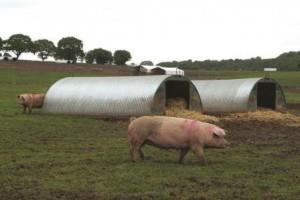Producers should look to abattoir reports to help them fight ‘invisible’ diseases and pathogen challenges, AHDB Pork has said.

“Some producers may have the mantra that what they don’t see won’t hurt them, but this isn’t the case as subclinical diseases are prevalent on many farms and can have a big impact on both a unit’s physical and financial performance,” Emma Bailey-Beech, AHDB Pork food safety project manager, commented.
“Subclinical diseases present a challenge because there are no visible signs that an infection is present, making them hard to detect.
“Historically, producers had no way of understanding the levels of subclinical diseases pressure that their unit was under,” Bailey-Beech continued. “However, this changed with the introduction of the British Pig Health Scheme (BPHS), in 2005.”
“The health monitoring scheme screens pigs at slaughter for incidence and severity of animal disease on member farms and I’d urge producers to take advantage of this service and analyse their herds’ post-mortem data.”
BPHS will be phased out from March 2017, however from that producers will receive similar reports based on Collection and Communication of Inspection Results (CCIR) from the Food Standards Agency (FSA) meat inspectors in the abattoir.
According to Cheryl Barker, health co-ordinator at AHDB Pork, the organisation holds BPHS health data for thousands of pigs that have been sent to the 12 abattoirs being assessed, but many producers sending the pigs are not currently taking advantage of this information.
“We can only share data with producers who are signed up to the scheme. For this reason, I’d encourage anyone that isn’t yet, to sign up to BPHS now to furnish themselves with accurate baseline information regarding their herd health – ready for the new CCIR system when it arrives,” Barker said.
“CCIR will offer similar information to BPHS but it will be streamlined.”
BPHS is a free service available to all English pig producers and they can sign up online.
This story was originally published on a previous version of the Meat Management website and so there may be some missing images and formatting issues.















